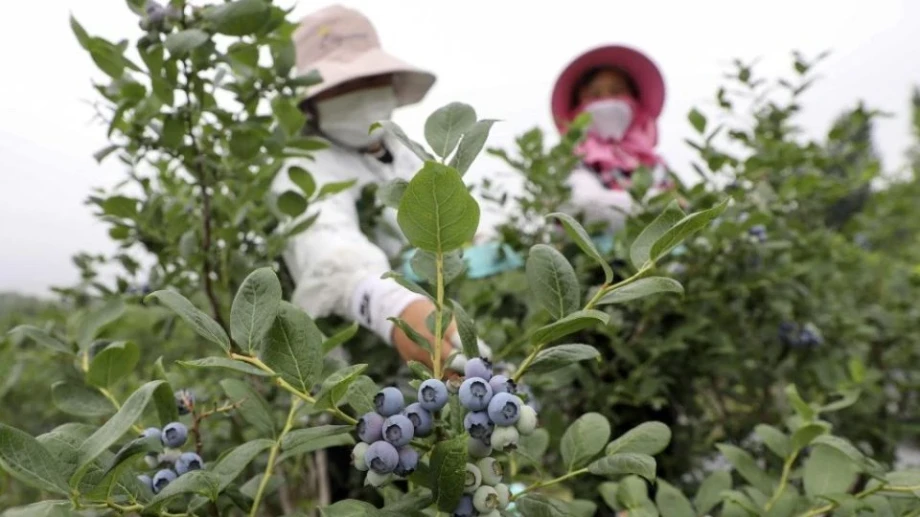The remarkable transformation of Chentuan, a town in the coastal city of Rizhao, Shandong province, is a story worth telling.
Once known for its polluting stone mining industry, Chentuan has become a picturesque area and the largest blueberry production base in the province. Over 1,660 hectares of blueberry fields produced 8,000 tons of fresh fruit last year, accounting for 30% of Shandong’s total output.
Blueberry production and consumption have been on the rise in China. Since surpassing the United States as the world’s largest blueberry producer in 2021, China has seen continued growth in the sector. Key producing regions include Guizhou, Liaoning, Shandong, Sichuan, and Yunnan.
Despite being the top producer, China also imports blueberries, mainly from Peru and Chile, with imports rising 45% in 2022 to 42,847 tons. Consumer interest in blueberries is growing, particularly among younger Chinese, with 80% of people aged 18 to 35 consuming blueberry-related products.
This demand has driven the development of new, larger, sweeter blueberry varieties with higher brix levels (sugar, vitamin, and mineral content) and longer shelf lives.
Due to land-use restrictions, it is challenging to expand planting areas, so local producers focus on cultivating more productive varieties. Chentuan has invested in research and development, cooperating with over 20 universities and research institutions, to enhance blueberry seedling cultivation.
Technological advancements, such as smart greenhouses with IoT systems, help improve cultivation, allowing real-time monitoring of soil and air conditions. This innovation has significantly boosted both the quantity and quality of blueberries produced in Chentuan, setting the stage for further growth in this blossoming industry.
The blueberry industry has generated numerous employment opportunities for local villagers. During the annual harvest season alone, it provides work for more than 10,000 farmers.
According to the township government, the growth of the blueberry sector has significantly boosted the town's economy. With a permanent population of 19,000, per capita bank deposits rose from 18,000 yuan in 2012 to 80,000 yuan in 2022.
Read full article: The Nation







